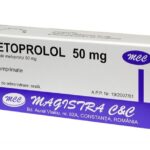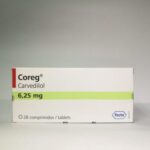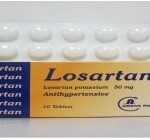Accidentally Took Double Dose Of Nifedipine Dosage?

Nifedipine more commonly known by the brand names Adalat, Adipine, Coracten, Fortipine, and Nifedipress is a calcium channel blocker. It works by affecting the movement of calcium into the cells of the heart and blood vessels. As a result, nifedipine relaxes blood vessels and increases the supply of blood and oxygen to the heart while reducing its workload.
Nifedipine is used alone or together with other medicines to treat severe chest pain (angina) or high blood pressure (hypertension). High blood pressure adds to the workload of the heart and arteries. If it continues for a long time, the heart and arteries may not function properly. This can damage the blood vessels of the brain, heart, and kidneys, resulting in a stroke, heart failure, or kidney failure. High blood pressure may also increase the risk of heart attacks. These problems may be less likely to occur if blood pressure is controlled.
How should Nifedipine be used?
Nifedipine comes as a capsule and an extended-release (long-acting) tablet to take by mouth. The capsule is usually taken three or four times a day. The extended-release tablet should be taken once daily on an empty stomach, either 1 hour before or 2 hours after a meal. To help you remember to take nifedipine, take it at around the same time(s) every day. Follow the directions on your prescription label carefully, and ask your doctor or pharmacist to explain any part you do not understand. Take nifedipine exactly as directed. Do not take more or less of it or take it more often than prescribed by your doctor.
Swallow the extended-release tablets whole; do not split, chew, or crush them.
Your doctor will probably start you on a low dose of nifedipine and gradually increase your dose, generally once every 7 to 14 days.
If taken regularly, nifedipine controls chest pain, but it does not stop chest pain once it starts. Your doctor may prescribe a different medication to take when you have chest pain.
Nifedipine controls high blood pressure and chest pain (angina) but does not cure them. Continue to take nifedipine even if you feel well. Do not stop taking nifedipine without talking to your doctor. Your doctor will probably decrease your dose gradually.
What Happens If You Accidentally Took Double Dose Of Nifedipine?
If you accidentally took a double dose of nifedipine you are likely to experience the following symptoms: agitation (hyperactivity), delirium (confused thinking and possible hallucinations), breathing difficulty, and confusion. According to Healthline, nifedipine comes with serious risks if you don’t take it as prescribed.
What to Do If You Accidentally Took Double Dose Of Nifedipine?
If you accidentally took a double dose of nifedipine seek emergency medical attention immediately or call the Poison Help line at 1-800-222-1222. There is no “magic wand” or antidote for nifedipine poisoning. Doctors generally treat hypotension with intravenous fluids, followed by calcium, insulin/dextrose, and vasopressors. Treatment options for nifedipine-induced bradycardia include atropine, cardiac pacing, and possibly calcium and glucagon.
What side effects can this medication cause?
Nifedipine may cause side effects. Tell your doctor if any of these symptoms are severe or do not go away:
• headache
• nausea
• dizziness or lightheadedness
• flushing
• heartburn
• fast heartbeat
• muscle cramps
• constipation
• cough
• decreased sexual ability
Some side effects can be serious. If you experience any of the following symptoms, call your doctor immediately or get emergency medical treatment:
• swelling of the face, eyes, lips, tongue, hands, arms, feet, ankles, or lower legs
• difficulty breathing or swallowing
• fainting
• rash
• yellowing of the skin or eyes
• increase in frequency or severity of chest pain (angina)
If you experience a serious side effect, you or your doctor may send a report to the Food and Drug Administration’s (FDA) MedWatch Adverse Event Reporting program online or by phone (1-800-332-1088).
Taking nifedipine with other medicines and herbal supplements
If you take other medicines that lower blood pressure with nifedipine, the combination can sometimes lower your blood pressure too much. This may make you feel dizzy or faint. If this keeps happening to you, tell your doctor as your dose may need to be changed.
Some medicines can affect the way nifedipine works.
Tell your doctor if you’re taking any of these medicines before starting nifedipine:
• the antibiotics clarithromycin, erythromycin, or rifampicin
• calcium channel blockers like diltiazem or verapamil
• the antifungal medicines fluconazole or itraconazole
• medicines for HIV or hepatitis C
• the epilepsy medicines carbamazepine, phenytoin, phenobarbital (phenobarbitone), sodium valproate, valproic acid, or primidone
• tacrolimus, a medicine used for preventing rejection of organ transplants or for treating conditions caused by an overactive immune system
• cimetidine, an acid-suppressing medicine
• the antidepressants fluoxetine or nefazodone
• digoxin, a medicine for heart problems
Mixing nifedipine with herbal remedies and supplements
St John’s wort, a herbal medicine taken for depression, is thought to affect the way nifedipine works. Talk to your doctor if you’re thinking about taking St John’s wort.
Ginkgo biloba and ginseng are popular supplements that may also affect nifedipine.
There’s not enough information to say that other herbal remedies and supplements are safe to take with nifedipine. They’re not tested in the same way as pharmacy and prescription medicines. They’re generally not tested for the effect they have on other medicines.





